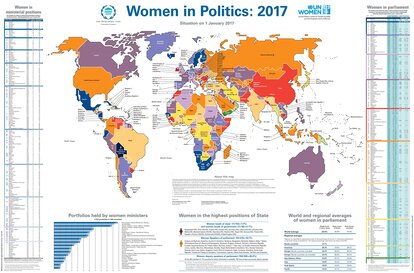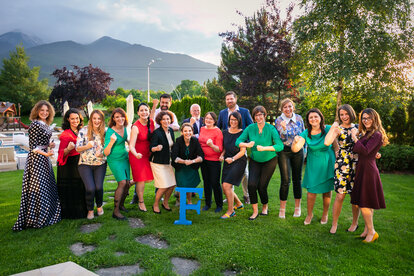Cracking the Glass Ceiling in Eastern Europe

After Croatia’s historic success in this year’s World Cup, Croatia’s president Kolinda Grabar-Kitarović had her moment in the spotlight. Everybody remembers the television footage of her standing in pouring rain next to France’s president Emmanuel Macron during the ceremony after the tournament’s final game. One could be forgiven for thinking that women are very well represented in Croatian politics. The same could be said of Serbia. In 2017, Ana Brnabić became that country’s first female and gay prime minister. However, for Croatia, Serbia and Europe at large, statistics and surveys all show the same gloomy picture over and over again: Women are still very far away from equal representation, despite the prominence of female heads of governments like Kolinda Grabar-Kitarovićs and Angela Merkel.

According to the UN report on “Women in Politics” (2017), Croatia is ranked 97th out of 193 countries, with only 19.9% of women represented in parliament. It seems that Kolinda Grabar-Kitarović is rather an exception when looking at the statistics alone. By comparison, Germany is ranked 23rd , with 37.0% of its representation in parliament being women. At the EU level, the representation of women in the European Parliament is at a record high, with 37.4%[1] in 2017. Yet, looking at the situation in Eastern Europe overall, Germany and the EU seem far ahead. With the exception of Serbia and Macedonia, which tie for the 39th place, the situation in Eastern Europe looks gloomy. Montenegro, Albania, Moldova, Bosnia and Herzegovina, Romania, and Bulgaria are all ranked between the 76th and 101th place, averaging 22% of women representation in national parliaments. Russia (128th), Ukraine (145th), and Armenia (160th) are in the lowest tiers of the ranking.

Alumni of EWA East Europe 2018
Against this background, the Friedrich Naumann Foundation, in partnership with the Alliance of Liberals and Democrats in Europe Party (ALDE Party) and the European Liberal Forum, launched in 2017, the European Women’s Academy Eastern Europe (EWA) that provides political leadership and campaigning training to up-and-coming women politicians from liberal European parties[1]. EWA East Europe is a state-of-the-art training designed for female liberal politicians in Eastern Europe. The Academy’s professional coaches enrich the participants’ campaigning, fundraising, and other skills needed to be able to become influential policymakers and politicians. EWA’s goal is not simply to provide Eastern Europe’s female politicians with the knowledge and tools necessary to take their political careers to the next level but also to inspire them to shake up the political landscapes in their respective countries.
Since its establishment, EWA East has already around 40 alumni liberal female politicians, who are now working to tackle the glass ceiling, improve politics in their countries, and inspire other women across Eastern Europe to do the same.
[1] https://www.aldeparty.eu/news/european-womens-academy-2018-meet-first-session